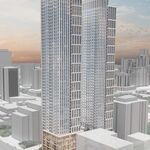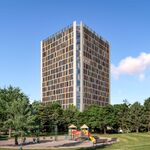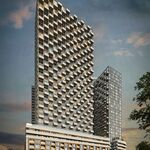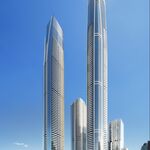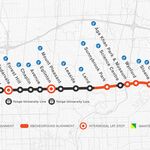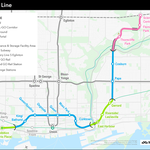Last week the TTC received its first ever Hybrid Electric bus. This bus represents just the first of 55 to be received by the end of 2018, with another 200 arriving by the end of 2019. The TTC estimates that this vehicle will be in revenue service within the next two weeks, after it undergoes testing and commissioning.
This order is part of the TTC's Green Bus Technology Plan, which was initially outlined in late 2017. The timelines for the goals have been modified slightly since the original plan, with the TTC aiming to achieve a 50% zero emission fleet by 2028-2032, and 100% zero emission by 2038-2042 (originally proposed as 2040). These targets will help the City of Toronto achieve the 80% reduction (from 1990 levels) in Greenhouse Gas emissions by 2050 that it outlined in its Transform TO Climate Change and Clean Air Action Plan. In accordance with this, the last Clean Diesel buses that the TTC will ever purchase will be delivered by the end of 2018.
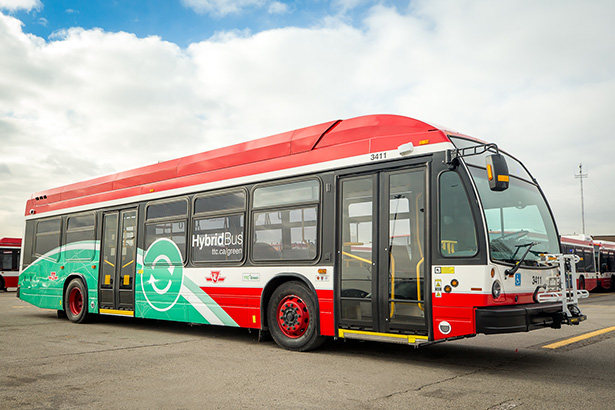 The first of the TTC's 255 new Hybrid Electric buses, image courtesy of the TTC
The first of the TTC's 255 new Hybrid Electric buses, image courtesy of the TTC
Hybrid electric buses use an electric motor that is charged by a combination of an on-board diesel engine and regenerative braking. The diesel engine provides direct power for the battery, negating the need for an external charging station, while the regenerative braking transfers the kinetic energy of the brakes coming in contact with the wheels into electrical energy, which can be fed back into the battery. The end result is an approximately 25% reduction in fuel consumption as compared with a standard clean diesel bus. This electric motor also powers all of the bus' component systems, including the doors, HVAC, and power steering.
The TTC has also placed an order for 60 completely electric buses (eBuses), which are scheduled to arrive throughout 2019. The TTC had originally planned to purchase only 30 eBuses, but in June 2018 decided to up that number to 60. The background report for that meeting can be found here. The total cost of this purchase is $120 million, which includes both the buses themselves and the associated infrastructure.
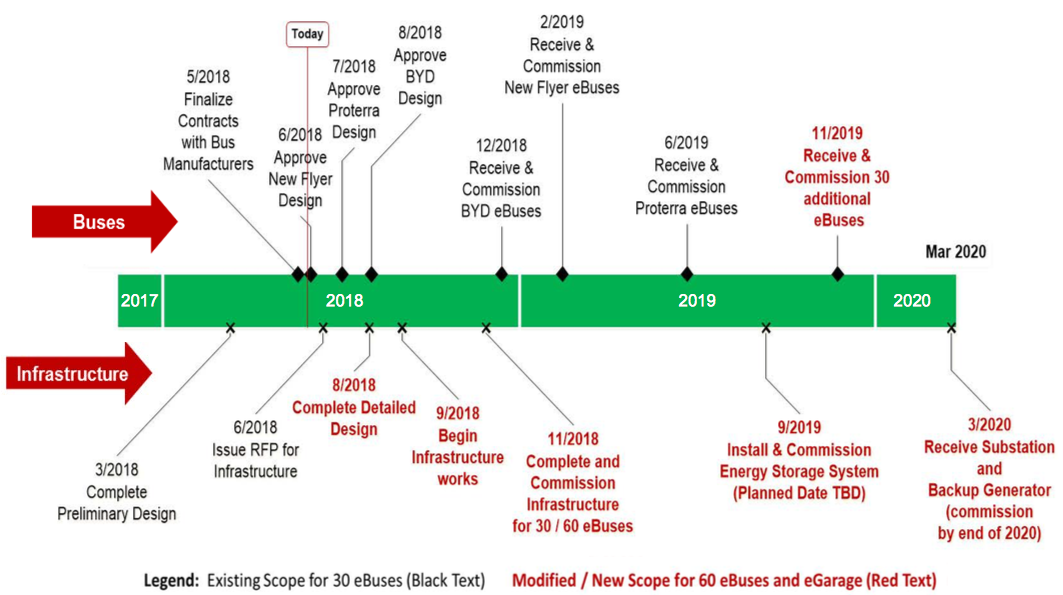 Timeline for delivery of eBuses and installation of related infrastructure, image courtesy of the TTC
Timeline for delivery of eBuses and installation of related infrastructure, image courtesy of the TTC
Rather than buying these fully electric 60 buses from one supplier as they did with the Hybrid Electric buses, the TTC has chosen to purchase from three separate manufacturers, in order to test their reliability, durability, and operability on Toronto's streets (and in our climate). The three manufacturers are:
- BYD, a Chinese company with a plant in California
- NewFlyer, based in Winnipeg
- Proterra, based in the US
Earlier this year Urban Toronto provided a very thorough overview of these companies and the technologies they offer. If you would like more details on the buses themselves, it is worth a read. The remainder of this article will focus primarily on the physical infrastructure required to facilitate these buses.
Unlike Hybrid Electric buses, these eBuses do not produce their own power on-board, and like traditional consumer Electric Vehicles (EVs), require the use of designated charging stations. Unfortunately, unlike the consumer EV market which, with the exception of Tesla, has chosen two nearly-universal port types (J1772 for Level 2 charging and CHAdeMO for Level 3), the eBus industry is much more manufacturer-specific.
BYD uses a charging system whereby the DC (direct current) from the charging station is converted to AC (alternating current) on-board the bus. This is in contrast to most other charging stations and vehicles, including those from NewFlyer and Proterra, where the DC-AC conversion is done at the charging station itself. The end result is that charging station infrastructure is tied very closely with vehicle type.
This lack of interoperability has caused the TTC to divide the 60 eBuses between three garages across the city, with 20 each at Mount Dennis (Etobicoke/York), Arrow (North York), and Eglinton (Scarborough). The distribution and infrastructure requirements are shown in the graphic below.
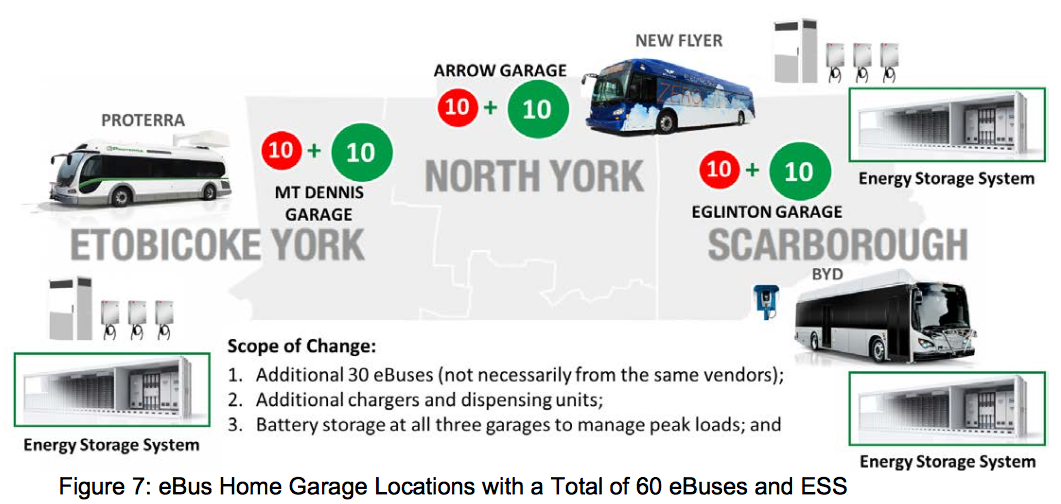 Home bus locations of the 60 eBuses the TTC has purchased, image courtesy of the TTC
Home bus locations of the 60 eBuses the TTC has purchased, image courtesy of the TTC
One issue with having 20 buses at each location is that it would exceed facility peak energy limits. To solve this issue, the TTC will install an Energy Storage System (ESS), basically a big battery, at each garage location. These ESSs will charge slowly during the day, as to not overload the electrical grid. Then at night, the eBus charging stations will be able to draw from both the ESS and the grid in order to complete the charging cycles for the buses.
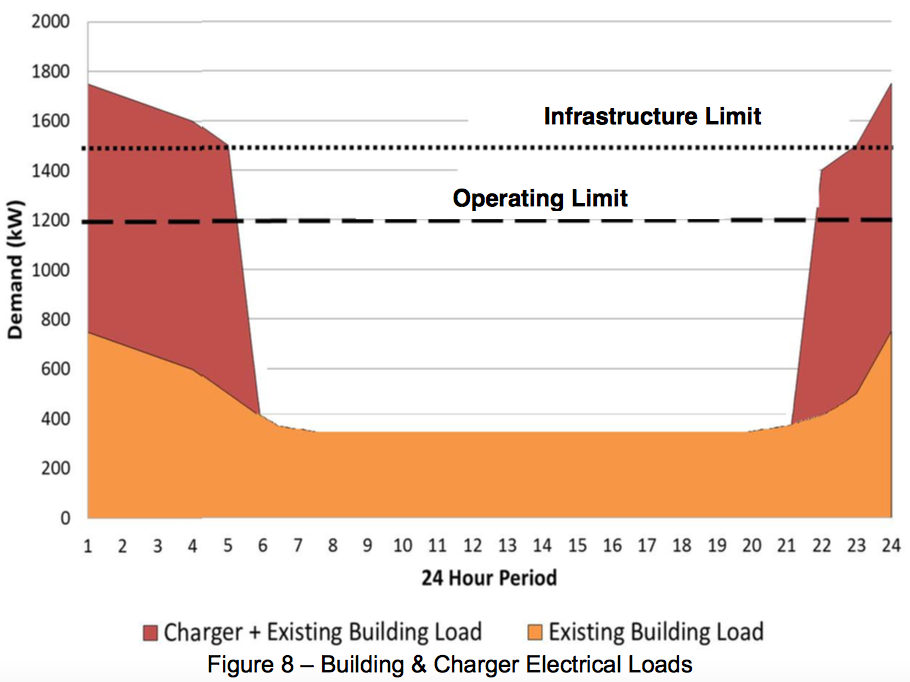 Electrical load profile without ESSs, which exceeds capacity, image courtesy of the TTC
Electrical load profile without ESSs, which exceeds capacity, image courtesy of the TTC
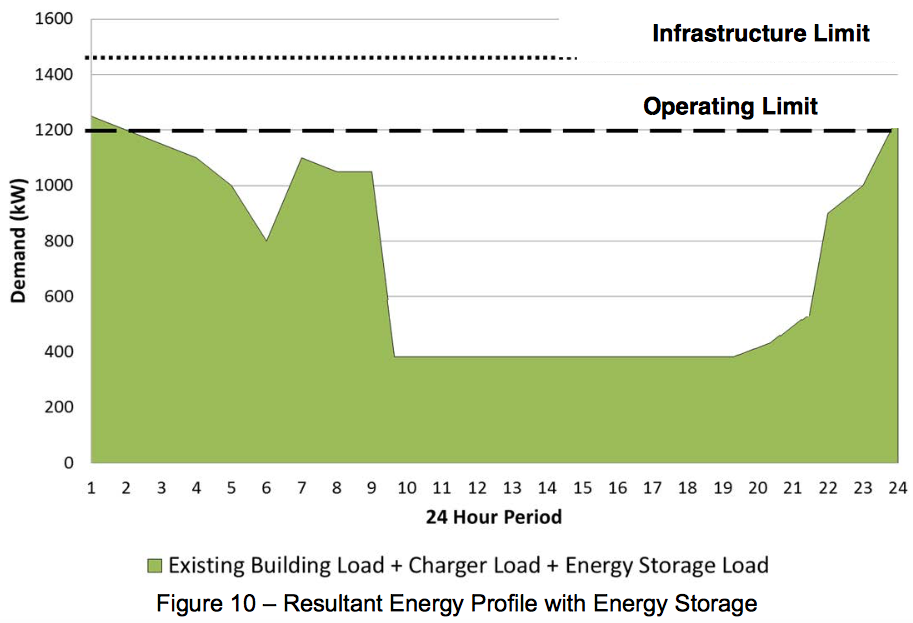 Electrical load profile with ESSs, which falls below capacity, image courtesy of the TTC
Electrical load profile with ESSs, which falls below capacity, image courtesy of the TTC
Even with these ESSs installed, the maximum charging limit at each garage is 20 vehicles. As a longer-term solution for once the eBus fleet expands, the TTC will work with Toronto Hydro to add substations at garage sites in order to increase electrical capacity, which is anticipated to negate this issue. This is part of a larger effort on the part of the TTC and Toronto Hydro to future-proof the TTC garages in order to handle the demands of an increasingly zero emission fleet. The total cost of the upgrades required to accommodate 300 zero emission vehicles is estimated to be $18 million, which includes the required substations and backup generators.
The under-construction McNicoll Garage is also being designed to be able to handle eBuses, and is being built with similar specs to what the existing garages are being retrofitted to.
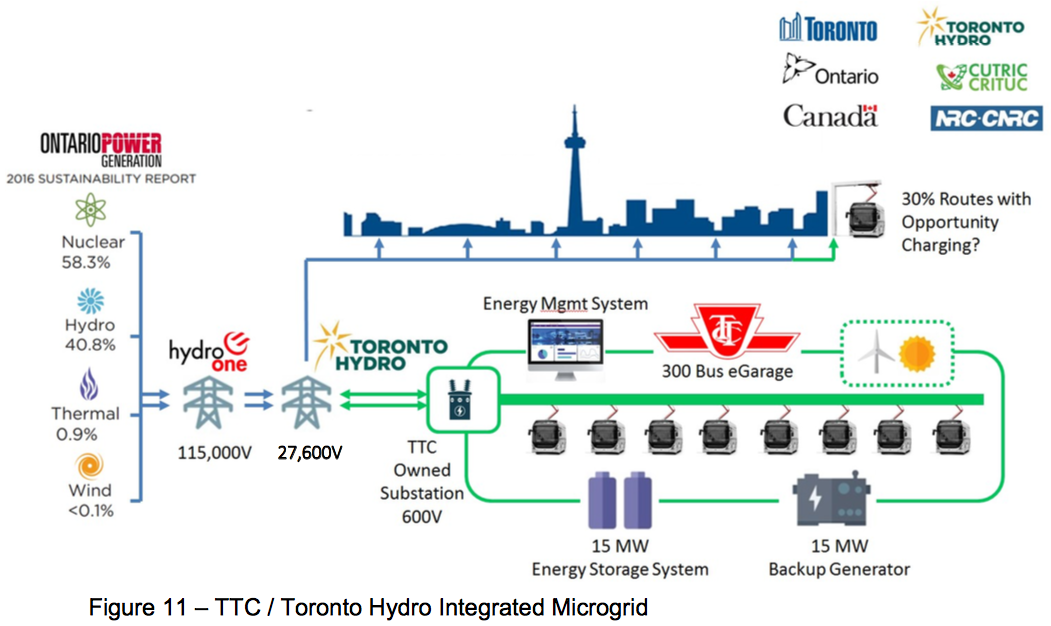 Microgrid diagram showing the energy supply and uses for the TTC garages, image courtesy of the TTC
Microgrid diagram showing the energy supply and uses for the TTC garages, image courtesy of the TTC
Urban Toronto will keep you updated on the TTC's Hybrid Electric and eBus programs. If you would like to share your thoughts on these programs, you can do so by visiting our forum thread, or by leaving a comment below.

 3.8K
3.8K 














